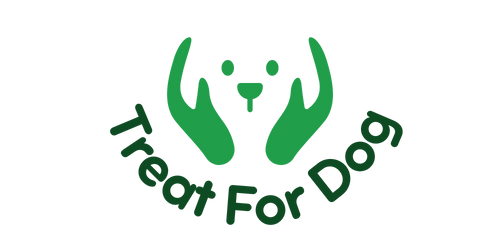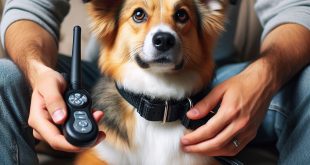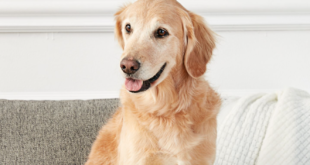Welcome to the ultimate guide to house training your furry friend! Potty Pup: The Art of House Training is not just a simple how-to guide for ensuring that your pup leaves its puppyhood messes behind – it’s an art form. From basic obedience training to establishing a daily routine, this guide is packed with everything you need to know to ensure your pup becomes the most well-behaved member of the family. With patience, dedication, and a sprinkle of creativity, this guide will have your pup potty trained and ready to take on the world in no time. So get ready to grab your leash and let’s get started!
Table of Contents
1. Potty Pup: Tips and Tricks for House Training Your Furry Friend
If you’re a new dog owner or adopting a new furry friend, one of the most important aspects of their training is house training. There are a few tips and tricks that will make the process easier and more efficient for both you and your pup.
First, establish a routine and stick to it. This means taking your pup out to potty at the same times every day, such as immediately after waking up, after meals, and before bedtime. Consistency is key in helping your pup learn that outside is the appropriate place to go potty.
Second, use positive reinforcement. When your pup goes potty outside, immediately give them praise and a treat to reinforce the behavior. This will help them associate going potty outside with positive experiences and encourage them to do it again.
Third, be patient. House training can take time and accidents will happen. It’s important to remain patient and understanding with your pup as they learn this new skill. With consistency, positive reinforcement, and patience, your furry friend will be potty trained in no time.
2. Step-by-Step Guide to Successfully House Training Your Pup
The
House training a pup can be a daunting task, but it’s essential to ensure a happy and healthy relationship between you and your furry friend. Here are some steps to follow to successfully house train your pup:
- Establish a routine: Pups thrive on routine, and a consistent schedule will help them understand when it’s time to eat, play, and go potty. Take your pup out first thing in the morning, after eating and playtime, and before bed.
- Choose a designated area: Take your pup to the same spot every time you go outside to help them understand that it’s a potty area. Use a word or phrase like “go potty” to help them associate it with the action.
- Reward good behavior: When your pup successfully goes potty outside, give them lots of praise and a treat. Positive reinforcement will encourage them to continue good habits.
- Limit freedom: When you’re not able to supervise your pup, keep them in a crate or confined area. This will prevent them from going potty in areas they shouldn’t.
- Be patient: Pups may have accidents, and it’s important not to punish them. Instead, clean up the mess and continue with the routine. With patience and consistency, your pup will learn good habits in no time.
By following these steps, you’ll soon have a well-trained pup that’s a joy to have in your home. Remember to be consistent and patient, and your furry friend will thank you with lots of love and affection.
3. From Mess to Success: A Comprehensive Guide to Potty Training Your Pup
Are you tired of cleaning up endless messes from your furry friend? Potty training can seem like a daunting task, but fear not. Our comprehensive guide has everything you need to know to ensure your pup becomes a toilet-trained success.
Firstly, consistency is key. Set a regular routine for your pup, including meal times, play times, and designated toilet breaks. By creating a routine, your pup will start to associate certain times of the day with going potty, making the training process easier for both of you.
Secondly, positive reinforcement is essential. Use treats and verbal praise to reward your pup every time they successfully use the designated potty area. This will create a positive association with going potty in the right place and encourage your pup to keep up the good work.
Finally, be patient. Potty training can take time, and accidents may still happen. Stay calm and avoid punishing your pup for mistakes. Instead, use accidents as a learning opportunity by redirecting your pup to the designated potty area and providing encouragement when they use it correctly.
By following these tips and tricks, your pup will be on its way to becoming a potty-trained success in no time. Good luck!
4. Don’t Let Accidents Control Your Home: Master the Art of House Training with These Proven Techniques
Proven techniques to put an end to accidents in your home! Whether you’re dealing with a new puppy or an older dog, house training can be a struggle. Thankfully, we’ve gathered some of the most effective methods to make the process a breeze.
First things first: establish a routine. Dogs thrive on consistency, and a consistent routine informs them when it’s time to eat, play, and relieve themselves. An example routine could look like this:
- 6am – Wake up and go outside
- 6:30am – Breakfast time
- 7:00am – Go outside again
- 10am-12pm – Playtime or training
- 12pm – Lunchtime
Next, watch your pup’s behavior and be prepared to act quickly. Most dogs will give clear signals when they need to go out. Watch for pacing, sniffing, and circling and immediately take your dog outside when you see these signs.
Lastly, remember to praise and reward your furry friend when they succeed. Positive reinforcement helps build a strong association with desired behavior. Treats, praise, and affection will all help your furry friend feel good about their success.
With these tips, you’ll be well on your way to house training success.
5. Happy Home, Happy Pup: The Importance of Effective House Training for a Well-Behaved, Happy Dog
Effective house training is a crucial aspect of owning a well-mannered and happy dog. Without proper house training, your pup may become stressed, anxious, and may even develop bad habits, making life more difficult for both the dog and their owners. In this section, we will outline the importance of house training and provide tips for achieving a well-behaved and happy pup.
Why is House Training Important?
- Prevents accidents: A well-trained dog knows when and where to go potty, preventing accidents in the house.
- Reduces stress: With a consistent routine, your pup will feel more secure and less stressed, leading to better behavior.
- Creates trust: Effective house training helps build trust between you and your pup, strengthening your bond and making for a happier home.
- Prevents destructive behavior: A dog that is not house trained may become destructive, chewing and scratching furniture and belongings out of boredom or frustration.
Tips for Effective House Training
- Establish a routine: Set a consistent schedule for your pup’s meals, potty breaks, and playtime. This will help them learn what is expected of them and promote good behavior.
- Patience is key: House training takes time, and your pup may have accidents along the way. Be patient and consistent in your training, and your pup will eventually learn.
- Use positive reinforcement: Reward your pup for good behavior with treats, toys, and praise. This will encourage them to continue good habits.
- Supervise your pup: Keep a close eye on your pup during training, and never leave them alone for extended periods. This will help prevent accidents and destructive behavior.
Mastering the art of house training takes time and patience. Not to worry, however: with Potty Pup, you’ve got the tools to make the entire process safe, fun, and stress-free. With this highly effective system, you can master the art of training your pup in no time. Happy potty learning!
 Treat For Dog – Brain Training for Dogs, Dog Training & Obedience Discover Treat For Dog and get your pup on the path to smarter, happier, and healthier living with brain training for dogs.
Treat For Dog – Brain Training for Dogs, Dog Training & Obedience Discover Treat For Dog and get your pup on the path to smarter, happier, and healthier living with brain training for dogs.




